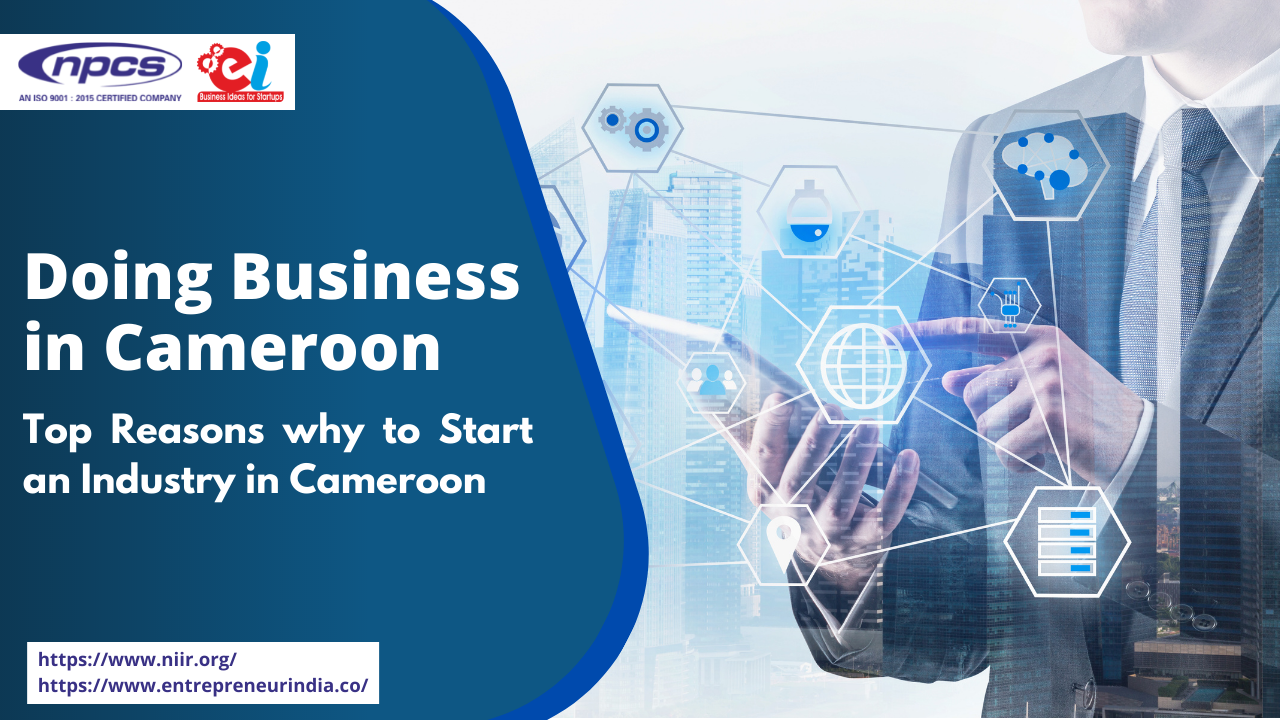
Starting a business in Cameroon offers a strategic gateway to Central Africa’s economic landscape. Positioned with access to both landlocked nations and the Atlantic Ocean, Cameroon has a diverse economy, rich natural resources, and a growing population of over 27 million. From agriculture and mining to logistics, retail, and digital services, Cameroon is evolving into a dynamic hub for entrepreneurial growth. With the right planning, local partnerships, and market knowledge, both local and foreign investors can tap into numerous opportunities across various sectors. Despite bureaucratic challenges, the government’s push toward economic liberalization and private sector involvement is a strong indicator of future potential. If you’re exploring the African continent for investment or expansion, business in Cameroon is an option worth serious consideration.
Visit this Page for More Information: Start a Business in Cameroon
Economic Overview and Sectoral Opportunities
Cameroon’s economy is classified as lower-middle income and is among the most diversified in the Central African region. Agriculture employs nearly 70% of the population and remains the backbone of rural livelihoods. Key crops include cocoa, coffee, bananas, and cotton. In recent years, non-traditional agriculture like aquaculture, poultry, and horticulture has opened doors for agribusiness startups. Business in Cameroon can also thrive in sectors like mining (bauxite, iron ore, gold), timber, oil & gas, construction, FMCG, and digital technology. Douala, as the commercial capital, and Yaoundé, the political capital, are focal points for most large enterprises and NGOs, offering a fertile ground for B2B, logistics, and consulting firms.
Start a Business in Africa: Click Here
Key Sectors to Watch
Several sectors present attractive investment opportunities. First is agribusiness, especially value addition in food processing, cold storage, and packaging. Cameroon is also investing in infrastructure development, such as roads, energy projects, ports, and housing. This creates space for construction firms, equipment leasing businesses, and related services. The retail and wholesale trade industry is expanding fast due to urbanization and increased consumer spending. Import-export businesses, particularly of agricultural produce, electronics, and consumer goods, are highly viable. Business in Cameroon also includes potential in healthcare, as the demand for private clinics, pharmacies, and diagnostic labs continues to rise due to population growth and limited public healthcare infrastructure.
Read Similar Articles: Business opportunities in Africa
Setting Up a Business: Registration and Process
To start a business in Cameroon, the government has centralized business registration under the “Centre de Formalités de Création d’Entreprises” (CFCE). It typically takes around 3–5 days to register a company. Legal structures available include sole proprietorships, private limited companies (SARL), public limited companies (SA), and branches of foreign companies. Required documents include articles of association, identification, capital deposit certificate, and tax registration. While the process has become simpler, language (French or English) and some bureaucratic delays may require the assistance of a local lawyer or consultant to ensure a smooth setup.
Related Feasibility Study Reports: Investment Opportunities & Business Ideas in Africa
Foreign Investment Climate
Cameroon allows 100% foreign ownership in most sectors, except in areas considered strategic like land and media. The government provides tax incentives, customs exemptions, and access to Special Economic Zones (SEZs) to attract foreign direct investment. Key projects like the Kribi Deep Sea Port and the Douala-Bangui Corridor are aimed at facilitating trade and logistics. For foreign investors, entering business in Cameroon often requires navigating regulatory requirements, cultural norms, and reliable partnerships with locals. The Central African CFA franc (XAF), which is pegged to the euro, offers currency stability. However, corruption and slow judicial processes remain challenges.
Read our Books Here: Startup Books for Entrepreneurs
Challenges of Doing Business in Cameroon
While there are great opportunities, doing business in Cameroon does come with its share of challenges. These include inconsistent power supply in some regions, underdeveloped infrastructure outside major cities, and administrative bottlenecks. Corruption and limited access to financing, especially for small and medium-sized enterprises (SMEs), can also be a concern. Entrepreneurs need to invest time in building strong relationships with local authorities and partners. Due diligence is essential when dealing with vendors, land titles, and licensing authorities. In addition, understanding Cameroon’s bilingual (French-English) legal and cultural landscape is key to avoiding miscommunication and delays.
Digital and Startup Ecosystem
The tech and innovation space in Cameroon is gaining momentum, particularly in cities like Douala and Yaoundé. Startups in fintech, e-commerce, logistics tech, and edtech are gradually emerging. Accelerators and innovation hubs like ActivSpaces and CIPMEN provide mentorship and resources for early-stage entrepreneurs. Mobile money services are widely used, creating room for digital financial services and payment platforms. The government has also launched digital economy initiatives to boost connectivity and digitization. Entering the digital business in Cameroon can be promising if you’re targeting young, tech-savvy consumers and solving infrastructure gaps through technology.
Trade and Export Potential
Cameroon’s strategic location provides access to six landlocked countries including Chad and the Central African Republic. Exporters in agribusiness, timber, minerals, and manufacturing can leverage this connectivity. The Kribi Deep Sea Port, the country’s most modern port, enhances its capacity to export and import globally. A business in Cameroon that focuses on export can benefit from trade agreements such as the African Continental Free Trade Area (AfCFTA), Economic Partnership Agreements with the EU, and preferential access to markets in the US under AGOA. However, export procedures and paperwork can be complex, so working with experienced freight and customs agents is advisable.
Government Policies and Support Programs
Cameroon has put forward several national development plans aimed at reducing its dependence on oil revenues and encouraging private sector participation. Programs like the “Vision 2035” and SME promotion schemes provide tax holidays, subsidized industrial land, and reduced import duties on machinery. The government supports youth entrepreneurship through initiatives offering startup capital, training, and incubation. Entrepreneurs can tap into programs managed by the Ministry of Small and Medium-Sized Enterprises (MINPMEESA) for grants, networking events, and market access. For those starting a business in Cameroon, aligning with national development priorities in agriculture, renewable energy, and industrial transformation offers added advantages.
Real Estate and Tourism
Real estate in Cameroon, especially in major cities, is growing rapidly due to population growth and urban migration. Construction of homes, commercial buildings, student housing, and hotels is on the rise. Real estate business in Cameroon can yield steady income via rentals, resale, or property development partnerships. Tourism is another area with untapped potential—eco-tourism, beach resorts, and cultural tourism can be developed with better infrastructure and marketing. Entrepreneurs exploring hospitality, travel services, and adventure-based tourism can create new value in this sector.
Final Thoughts
Exploring business in Cameroon presents a blend of opportunities and challenges. With the right mix of local insight, sectoral focus, and legal guidance, entrepreneurs can tap into the country’s rich resource base, youthful population, and growing consumer market. From agribusiness and digital startups to construction, export, and retail, Cameroon’s economy is ready for transformation. Investors who take a long-term view, build strategic partnerships, and adapt to local realities are likely to thrive. As Africa continues to rise, Cameroon is clearly one of the countries offering fertile ground for scalable, sustainable business growth.
Watch other Informative Videos: African Countries – Identification and Selection of right Project
See More Links:
- Start a Business in Asia
- Start a Business in Potential Countries for Doing Business
- Best Industry for Doing Business
- Business Ideas with Low, Medium & High Investment
- Looking for Most Demandable Business Ideas for Startups
- Start a Business in Africa
- Start a Business in India
- Start a Business in Middle East
- Related Videos
- Related Books
- Related Projects
- Related Market Research Reports
NIIR PROJECT CONSULTANCY SERVICES, DELHI
An ISO 9001:2015 Company
ENTREPRENEUR INDIA
106-E, Kamla Nagar, Opp. Mall ST,
New Delhi-110007, India.
Email: npcs.ei@gmail.com
Tel: +91-11-23843955, 23845654, 23845886
Mobile: +91-9097075054, 8800733955
Website: https://www.entrepreneurindia.co
https://www.niir.org





